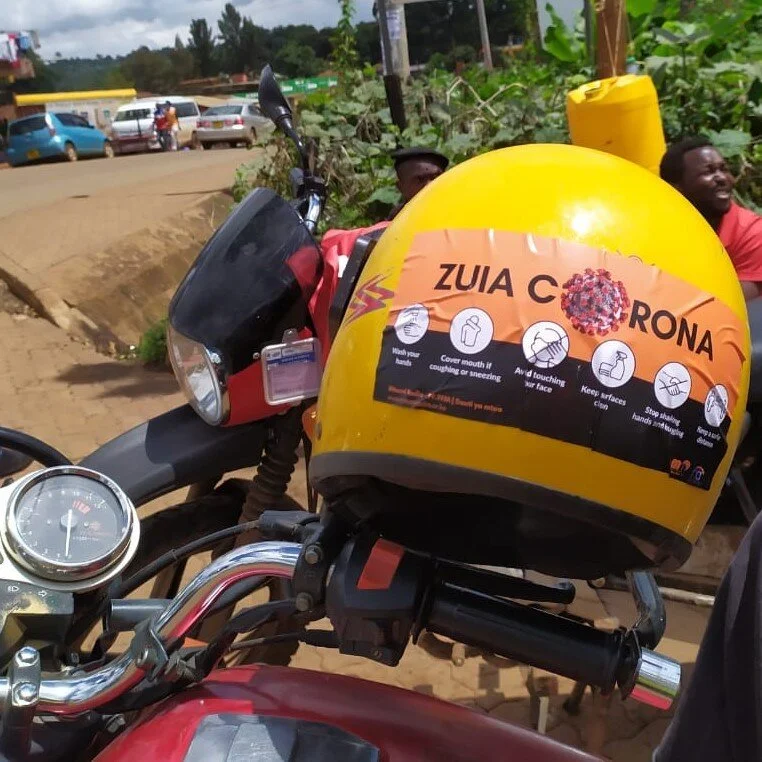During the Covid19 crisis, one encouraging theme to arise is that of ‘Emergent Agency’. As many NGOs and official sources of assistance have had to withdraw or reduce services, or have even become barriers to assistance, people in disadvantaged communities have shown great resilience and entrepreneurship in developing their own ways to overcome the crisis.
One of HCR’s core values is having a community focus. We see that, within communities there is huge potential for innovating and driving sustainable transformation. During the Covid19 crisis, we have seen this in Kenya, Uganda and Pakistan.
In Nairobi, Boda Boda (motorcycle taxi) drivers still had to work and earn a living, but this put them at risk due to close proximity with their passengers. Rather than fight the reality, community health workers and Mtaani FM found the opportunity to educate people more widely, and help the improve safety for the drivers in other ways. They clubbed together to create Covid-19 infection prevention stickers which the drivers wore on their helmets. They also had some hi-viz safety vests printed with the messages. Passengers would spend their journey reading about washing their hands and protecting others from infection.
In Uganda, a number of refugee-led organisations, including our partner CDC, found that the needs in the communities were changing rapidly and urgently. They worked with an innovative software company, ListNeeds, to develop something a bit like a ‘wedding present list’ of items that their communties need. Each organisation has their own page, and could present the immediate and rapidly changing needs to international donors directly. You can view CDC’s list here.
CDC’s Soot Semee team have worked hard to ensure community voices remain at the core of the media project, even with the limitations caused by Covid19. They don’t take their portable studio into the communities as it tends to attract a crowd, putting people at risk through lack of distancing. Instead, the team take small voice recorders into the community, set them up on a stand, then invite people to come forward and tell their story. Some community members also record their opinions or other contributions on their phones, send them by Bluetooth to a friend who has internet access, who then sends it by WhatsApp to the Soot Semee team. This is so important, as the community says “we feel like we are teaching other”, rather than being told what to do by outsiders.
In Pakistan, a church youth group felt despair at the social problems in their community caused by poverty. Lockdown and loss of livelihoods only seemed to make things worse. They invited Hazeen Latif from HCR Pakistan to teach them about community-centred media. They learned a method for breaking down these seemingly insurmountable problems and identifying realistic steps to address issues. They said “We felt we had a real way to address our own problems”. Straight away they started to create community service announcements (CSAs) using local voices to distribute into the community as MP3 files to be played on social media or speakerboxes.
We see our role as HCR to be that of catalysts. We constantly seek the right balance of providing input to equip and support community partners, while leaving space for emergent agency to thrive.

